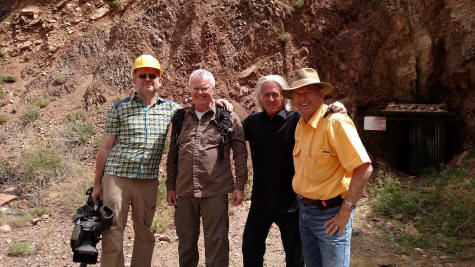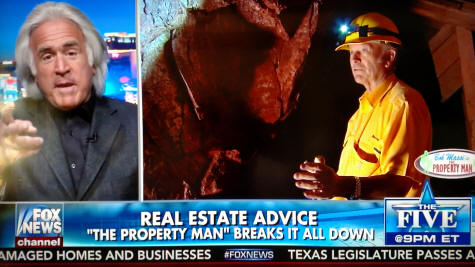
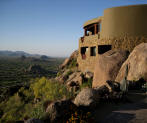

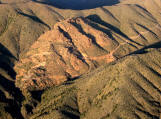

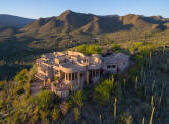


The Octave, Legendary Mining Property,
 MUST SEE. . .Media Coverage of the
Octave Property
MUST SEE. . .Media Coverage of the
Octave Property
![]()
![]()
"A Miner's Dream" says one geologist when viewing the massive gold veins near the Twin Tunnels. Investors: Price of gold expected to rise and stay strong.
Own the entire 266
patented acres of the Octave vein,
which has produced over $310 million in precious
metals on 30% of the property, a three-mile long vein with
access to water and electricity on the site (200 amps, 407
volts) Featured by Fox News on "The Property Man with Bob Massi"
Seen on SyFy's hit show "Ghost Mines", Phoenix TV, newspapers
Forbes Magazine with mulitple features.
This offering includes numerous Patented Claims believed to
follow the rich Octave vein and offshoots, up the mountain
with road access to over 5,100 feet elevation, surrounded by BLM
land, and the private gated residence. New gold discoveries on
the upper vein. Check the video:
![]()
Offered for $16,900,000.
See large map below of all 266 patented acres included.
MLS 6151111
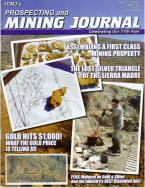 Featured
in a 5-page cover story in Prospecting and Mining Journal on
"Assembling a First-Class Mining Property. " The article states
"this is the first time all of these contiguous mining properties
have been united under the control of a single owner."
Featured
in a 5-page cover story in Prospecting and Mining Journal on
"Assembling a First-Class Mining Property. " The article states
"this is the first time all of these contiguous mining properties
have been united under the control of a single owner."
Click here to read the article:
![]()
Over 200,000 oz. of gold documented,
75,000 oz. silver! Watch the video tour
![]()
Responding to global unrest and high inflation, the price of gold remains very strong.
See what they are saying about
the Octave potential:
![]()
Enjoy this colorful history of Rich
Hill! Note the Octave story on page 4!
![]() Thanks to Dr. Erik B. Melchiorre for sharing his information.
Thanks to Dr. Erik B. Melchiorre for sharing his information.
Good read--The owner's opinion of
economic potential and worth:
![]()
Amazing video, fly OVER the 3
mile-long property on Google Earth! This is the BEST
introduction to the property: ![]()
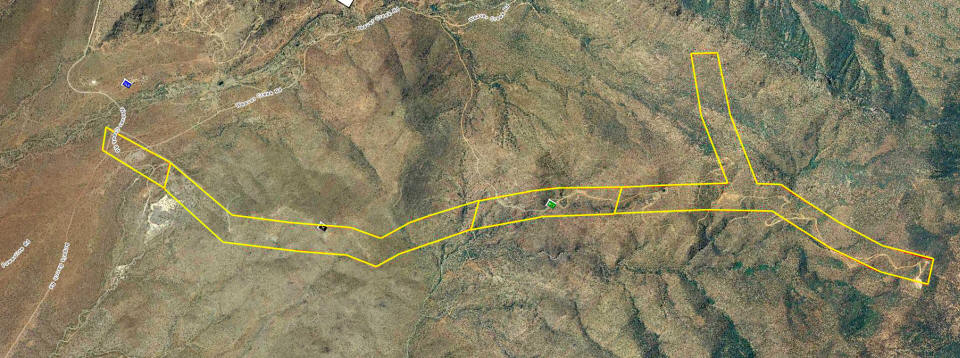
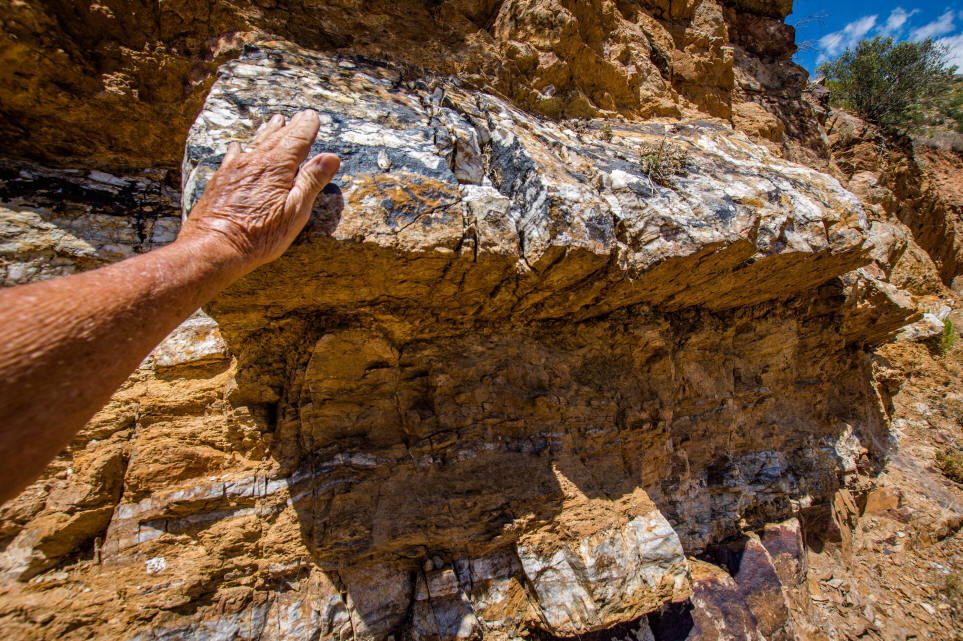
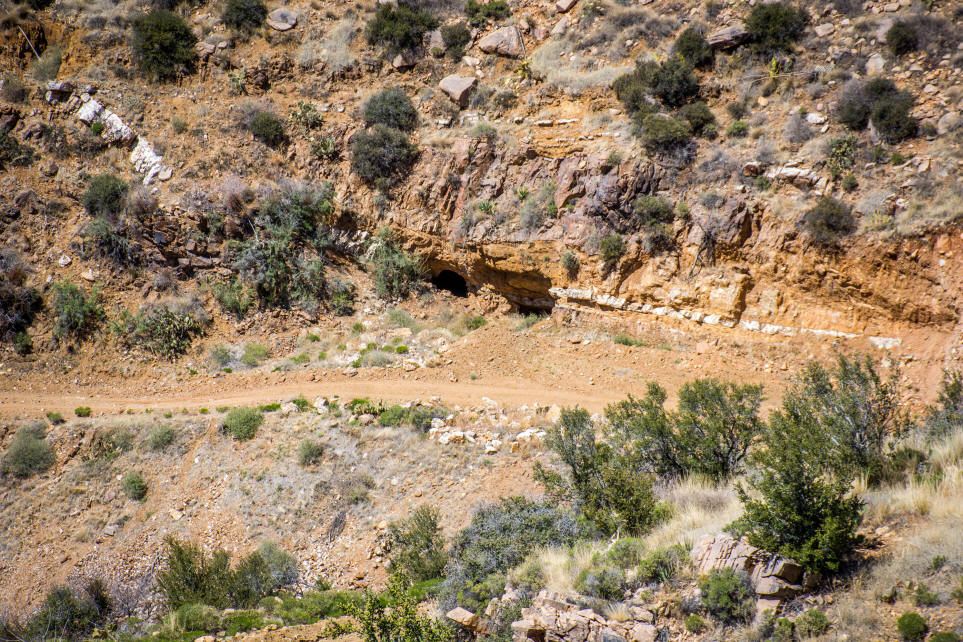
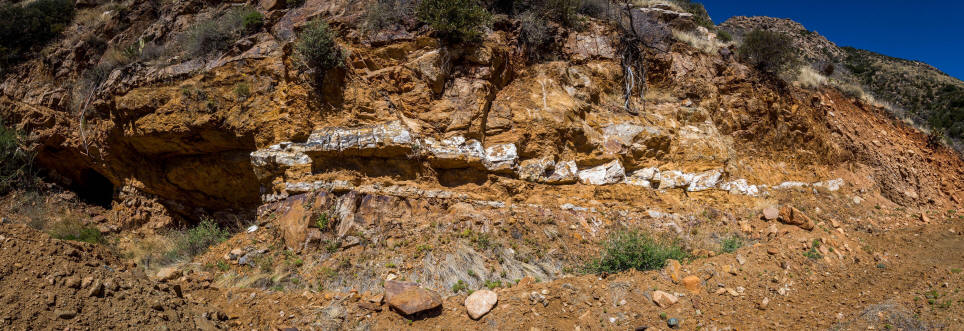
.jpg)
See more on the history and geology of the region by scrolling down.
Below, The Octave tunnels were featured numerous times in the SyFy show "Ghost Mines"
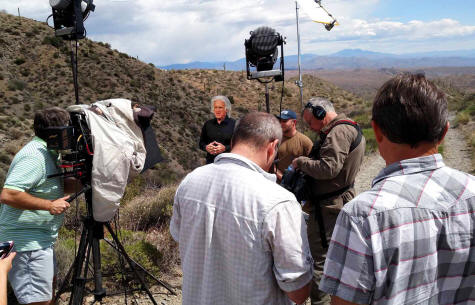
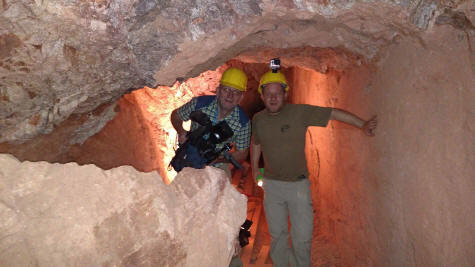
Photos below: The Octave, just a small part of the property being offered, was one of Arizona's most historic properties, with documented gold production of over 200,000 ounces. Over $300 million of precious metals already mined, and on only 30% of the property! The buildings are all gone now, but the minerals of the rich vein remain, snaking underneath the 266 acres of patented land. Below is an aerial of Rich Hill in the Weaver Mining District, one of the most active districts in Arizona. The Octave property starts at the lower right of the photo.
There is plenty of gold to be mined from the rich Octave vein, but what about the 25 miles and more of empty tunnels on the property? Here's a good thought-starter, gathered from smart miners around the world. 20 other uses for mine tunnel, other than mining! Check it out:
Historical photos courtesy Sharlot Hall Museum.
.jpg)
-40.jpg)
(below) Once you get up to the house, here's the big picture of the top half of the property. This is the Beehive section, and believed to be more highly-mineralized that the Octave, although with less production data available.
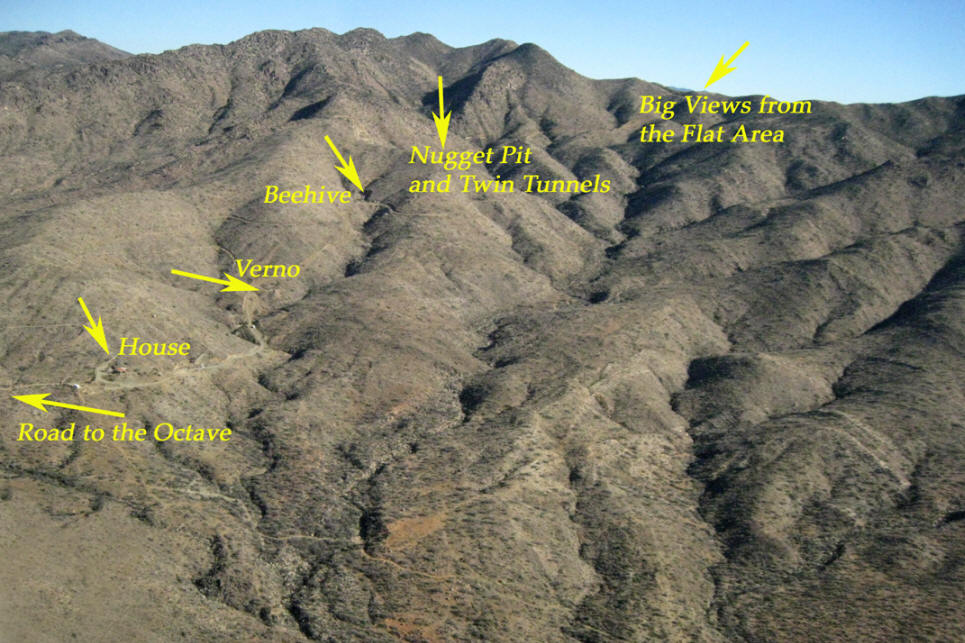
-35.jpg)
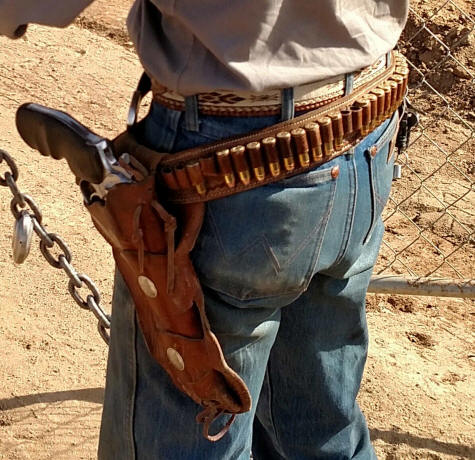
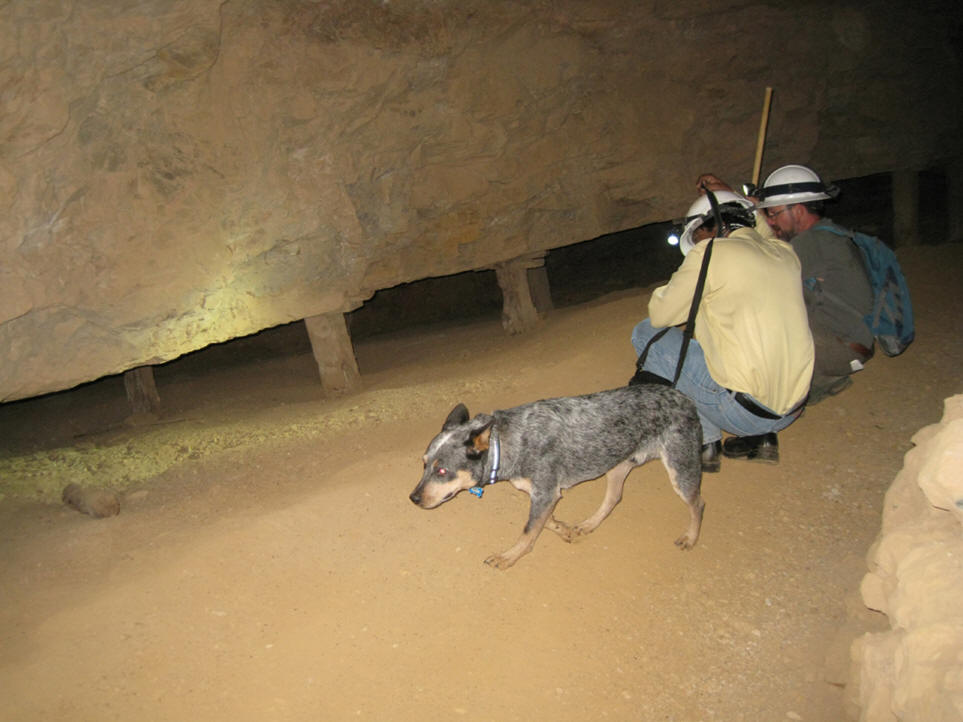
(below, right) Huge excavation of the Nugget Pit, which was scrapped down to the prime ore-bearing rock. Note near the top where the pit was started. The bottom of the pit broke through some of the old tunnels. Photo bottom left, sampling ore in Twin Tunnels
.jpg)
.jpg)
.jpg)
-28.jpg)
.jpg)
.jpg)
-24.jpg)
-27.jpg)
.jpg)
More on the Mines below:
.jpg)
-11.jpg)
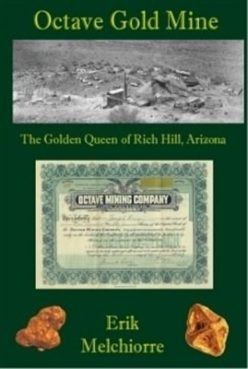
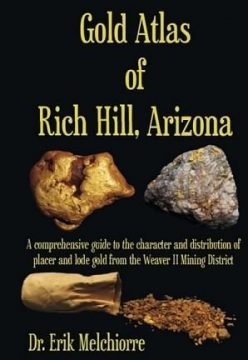
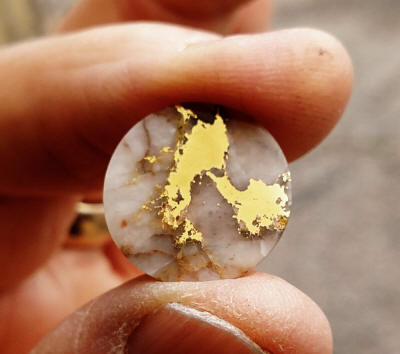
-16.jpg)
.jpg)
-36.jpg)
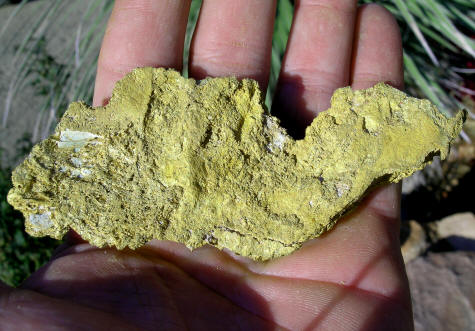
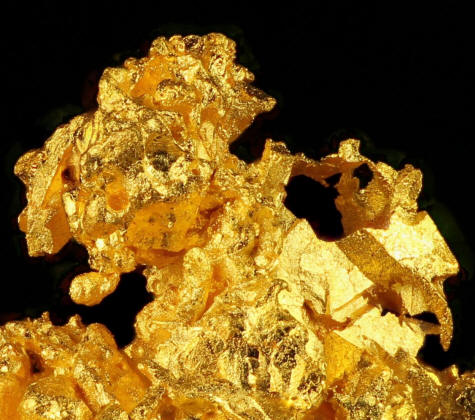

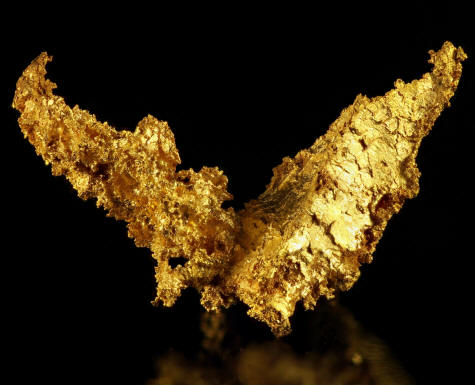
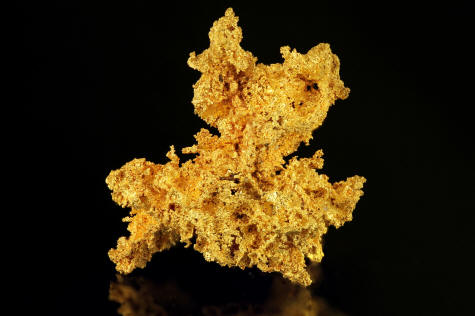
-37.jpg)
Geologic
Analysis of Octave, Beehive Mines![]()
From the book “Rich Hill,
the history of
By Dr. Erik Melchiorre, Dr. Dante Lauretta, Dr. M. Katherine Crombie, Chris Gholson
Published by Golden Retriever Publications
To order “Rich Hill” call toll free,
1-866-369-2468 or 1-303-449-5995
$24.95 + $3.95 s/h
Octave Mine-One
of Arizona
The Octave Vein ranges from 5 inches to 5 feet thick and averages about 3 feet thick. The vein consists of massive gray to white quartz, with rare disseminations (4%-5%) of pyrite and galena. Older reports record small amounts of chalcopyrite. Little gold occurs in native form with most being microscopic inclusions on or within sulfide minerals. Of notable concentration was the pure galena, which assayed 100 oz. of gold and silver per ton and the pyrite which average 8 to 25 ounces per ton.
Having produced some 80,000 ounces of gold, the Octave Mine remains by a very large margin, the single largest producer of lode gold in the Weaver District. Interestingly, the lode gold from the Octave is more than the estimates of placer gold production for all mining operations in the district. Between 1895 and 1925, over 75,000 ounces of silver were removed from the Octave
ASARCO had last operated the mine on a large basis in the early 1940s.
The seller reports that experts believe one area at the Octave that bears further investigation is where the exposed veins run along the road from the White cross to the Joker shaft entrance. When Dr. Erik Melchiorre (author of "The Octave Mine") and the owner were walking the property a few years ago, the doctor said there maybe high gold values in one of the two main veins showing along there which would be easy pickings for a shallow surface operation. Also a nice specimen of crystalline gold in a narrow quartz stringer was found with a detector just uphill from the white cross a about 5 years ago so there is some specimen potential there as well.
You never know what might turn up as another vein of the Octave is found. While one owner sold the property around 1905, convinced that he had found most of the ore, in 1915, a subsequent owner hired a crack mining engineer named J. Nelson Nevius who felt the mine had been mismanaged and the vein was not properly traced. He had his workers start uncovering a vein and do some work around what was called the Joker Shaft. They believed the main Octave vein had been offset by faulting in this area, and the awesome quality of what they found set a high-water mark for the property. Nicknamed "The New York Stope," the tunnels there produced 25,000 ounces of gold. The exceptionally-rich ore averaged one ounce of gold and one ounce of silver per ton, with the highest sample recording a jaw-dropping 6.1 ounces of gold per ton, while galena-bearing rock in the New York stope got as high as 12.84 ounces of gold/ton and almost as much silver.
Between the Octave and the Joker operations, there were more than 25 miles of tunnels, at 100-foot-intervals.
Early miners, in an attempt to get a piece this incredible Octave vein, filed claims all the way up the mountain, and included off-shoots of the vein. This 266 acre offering includes that land.
Beehive Mine- Believed my many geologists as an extension of the Octave Vein, the Beehive vein has virtually identical mineralogy, orientation and structure. Notable minerals reported and confirmed include bornite, tetrahedrite and gold-silver tellurides. The Beehive Mine is located at the center of the Golden Age claim where the vein intersects a north-west trending shear, or fault zone. The mine was first operated from the late 1890s to 1915 by the original owner. It was patented by a second owner, Andrew Peterson in 1900.
The Ziegler Tunnel, named for the first owner,
is an inclined shaft that follows the vein down dip for 1100 feet.
Various levels from the shaft had stopes on the high-grade ore.
There are no detailed working, which are now largely under
water and inaccessible.
In 1982, International Gold and Minerals Ltd.
Drilled several exploratory holds to examine the vein at depth.
Results must have been moderately promising, as in 1984, another
larger company from
These two mines represent but a small portion of the entire 266 acres of patented claims. being offered for sale.
Further detailed geologic analysis from Dr. Melchiorre's "The Octave Mine" includes "Granite to dioritic igneous rock hosts the Octave vein chiefly composed of quartz and strikes (runs) 70 degrees East of North and dips at an angle of 20 to 30 degrees to the Northwest. The vein has experienced some degree of reverse faulting, as indicated by a fault gouge and cleavage in the vein. Old faults have displaced the Eastern side of the vein to a depth of over 400 feet below the sediments of Weaver Gulch. To the West, the vein has also been cut by old faults, but these faults, i.e.: The Joker Fault, only offset the vein by 50 feet or so. The vein is traceable on the surface for at least 2500 feet of strike. A few small barren quartz veins cut the Octave vein and are offset by the fault with a displacement of less than 100 feet. The richest ore in the vein occurs where it lies adjacent to and bounded by Apache diabase dikes.
The Octave vein ranges from 5 inches to 5 feet thick and averages about 3 feet thick."
Other resources include: "Octave Gold Mine-the Golden Queen of Rich Hill" and "Gold Atlas of Rich Hill, Arizona", both by Dr. Erik Melchiorre, published by Rock Doc publications.
.jpg)

.jpg)
.jpg)
above photos, left, the road to the top, right, aerial of the top of the property looking toward Octave
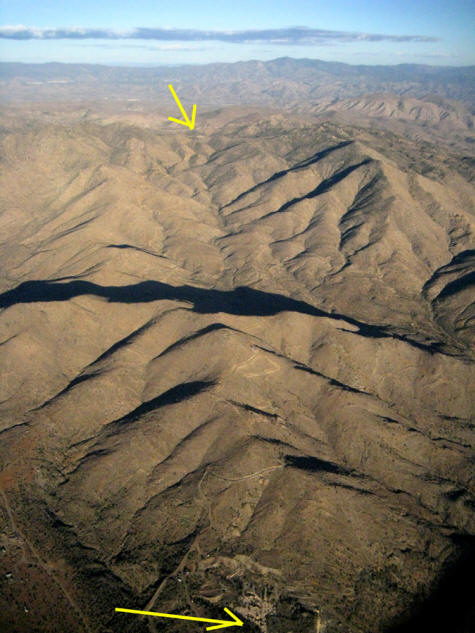
.jpg)




Parcels included in the sale owned by either Ben Jaffe Revocable Trust or
Octave
Development LLC:
Parcels
included and ownership:
204-22-010
(Thunderbolt and Verno, total 38.56 AC, known as Bishop group) Owned
by, Ben Jaffe revocable trust
Location:
The Thunderbolt and Verno Lode mining claims, located in the
Weaver Mining District, being shown on Mineral Survey # 1424, as
granted by patent recorded in book 54 of deeds, page 95, records of
204-23-026
(Golden age, Golden star, Golden cloud, golden standard, golden
standard extension, Beehive,
Location:
The Golden Age, Golden Cloud, Golden Star, Gold Standard,
East Extension, Beehive and Highland Lode Mining Claims, designated
by the Surveyor General as lot no. 1422, in the Weaver Mining
District, US Patent whereof is recorded in Book 63 of Deeds, pages
459-466.
204-22-011
(Golden rod, Uncle Sam, New era, Antelope, Grey devell, total 85.07
AC, Known as part of the Octave group) Owned by Octave development
llc. of which I am the manager.
Location:
Parcel 1: The Antelope,
Grey Devell and the Dun Billy lode mining claims designated by the
Surveyor General s Lot 1248, Weaver Mining District, Yavapai County,
Arizona, United States Patent whereof is of record in book 43 of
Deeds, pages 143-148, in the office of the Yavapai County recorder.
Excepting
from the Dun Billy all surface placer deposits, but including
therein all mineral bearing veins and lodes within the boundaries of
said claim, extending vertically downward.
Parcel 2:
The Golden Rod and Uncle Sam lode mining claims designated by the
surveyor General as lot 1310, Weaver Mining District, Yavapai
County, Arizona, United States Patent whereof is of record in Book
49 of Deeds, pages 547-552 in the office of Yavapai County Recorder.
Parcel 3: The New Era mining claims designated by the Surveyor General as lot 1423, Weaver Mining District, Yavapai County, Arizona, United States Patent whereof is of record in book 54 of Deeds, pages 100-103, in the office of Yavapai County Recorder.
Location: included in previous entry above for parcel 204-22-011
-8.jpg)
-9.jpg)
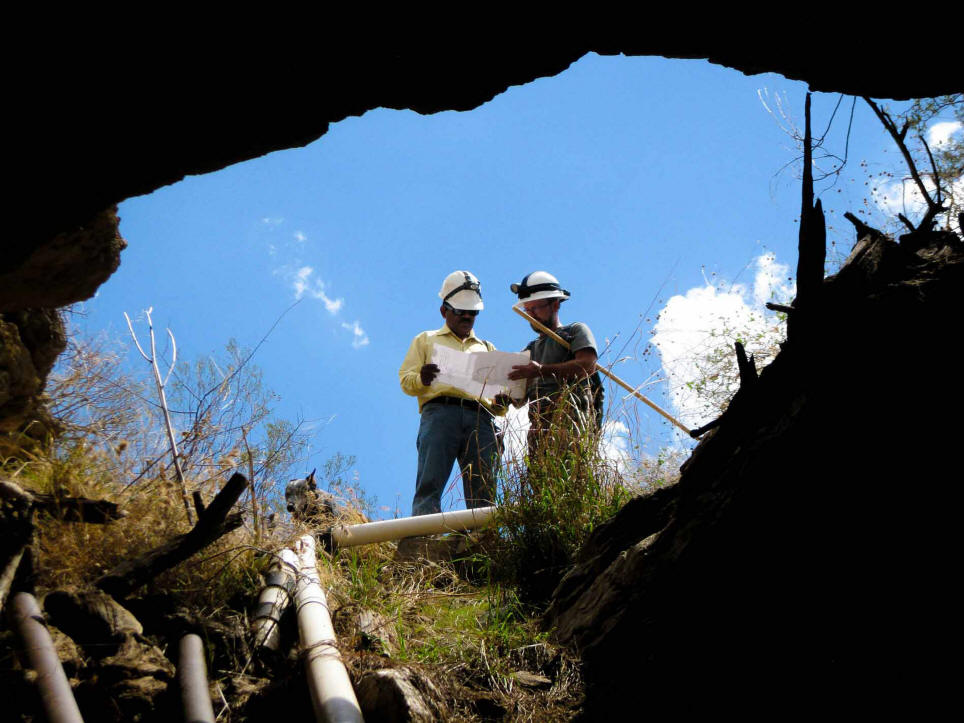
No unauthorized visits to the property will be allowed and all prospective buyers must be accompanied by the listing agents. There are multiple caretakers on the site 24/7 to guard against unauthorized entry.
Serious and qualified buyers only, please. Please no calls about joint ventures and partnerships. Seller wishes to sell the land outright.
Contact Preston Westmoreland for any further information or to schedule a trip to the property. It is about a one hour and thirty minute trip by vehicle to the mine property and at least 5 hours should be allotted for an on-site visit. Call Preston at 602-377-0060 Be sure to watch the video tour in high definition on vimeo.com See it featured by Bob Massi on Fox's "The Property Man"
Zillow's writers feature the Octave, also on the NBC/Today show webpage:
And here's Bob Massi's story on gold hill and the Octave, an amazing tunnel adventure. Please note, Gold Hill is no longer available.
Please note: Sellers are not currently seeking partnerships, joint ventures and leasing agreements. An option may be purchased for exploration work and due diligence and would be put toward the agreed upon purchase price of the property.
